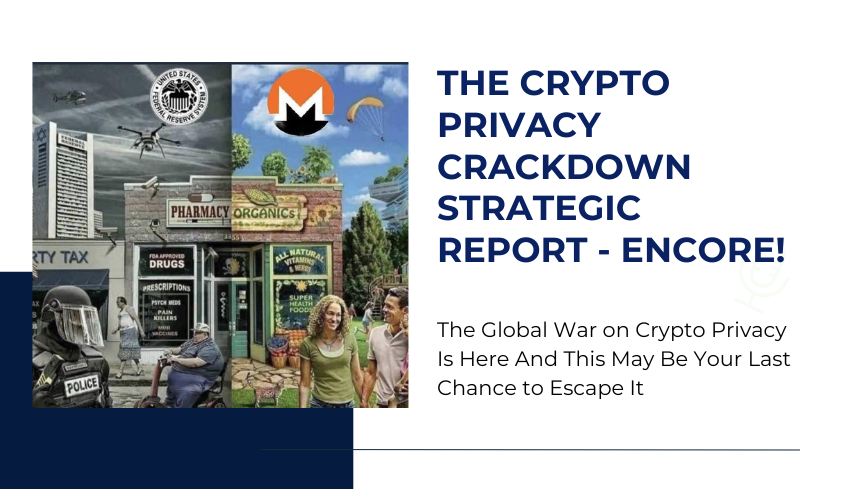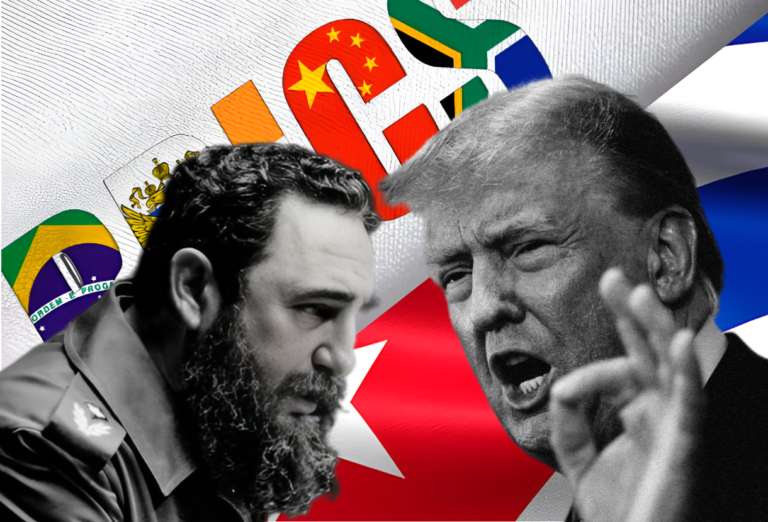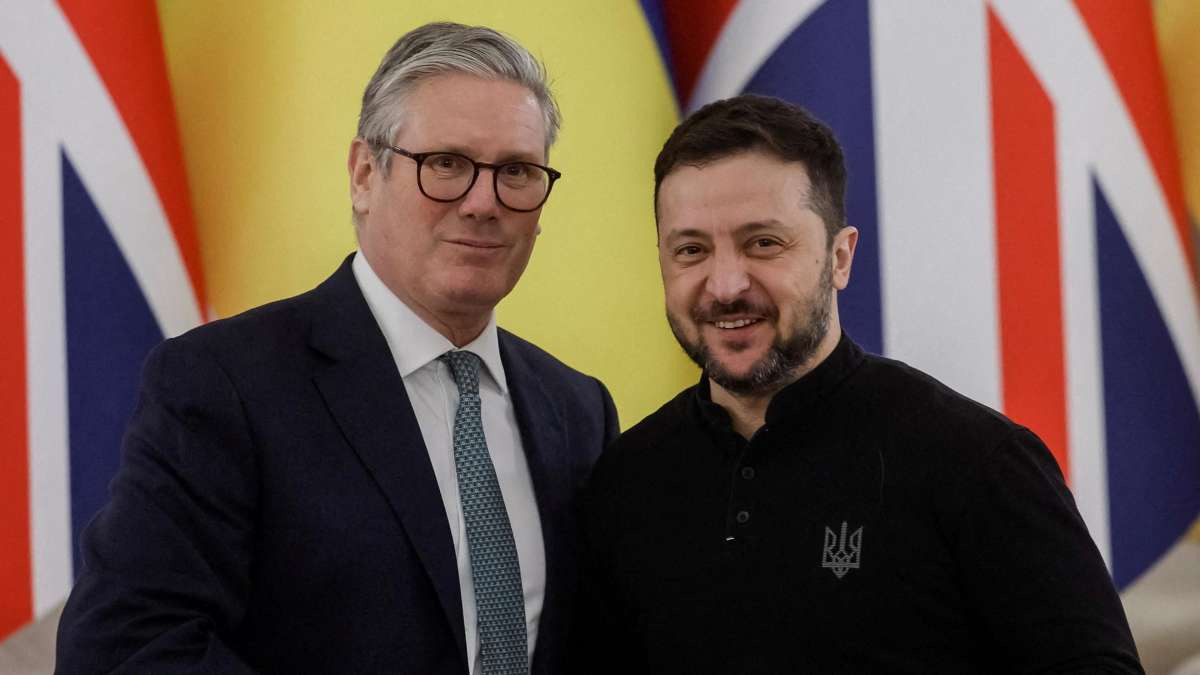Not to be confused with unipolar carbon markets
On November 22, the G20 will gather in BRICS-state South Africa to discuss the #1 crisis facing humankind: the nations of the world are struggling to meet their UN Sustainable Development Goals, which are supposed to be achieved by 2030. That’s only five years away!
To paraphrase the G20’s website: that’s not good—that’s bad.
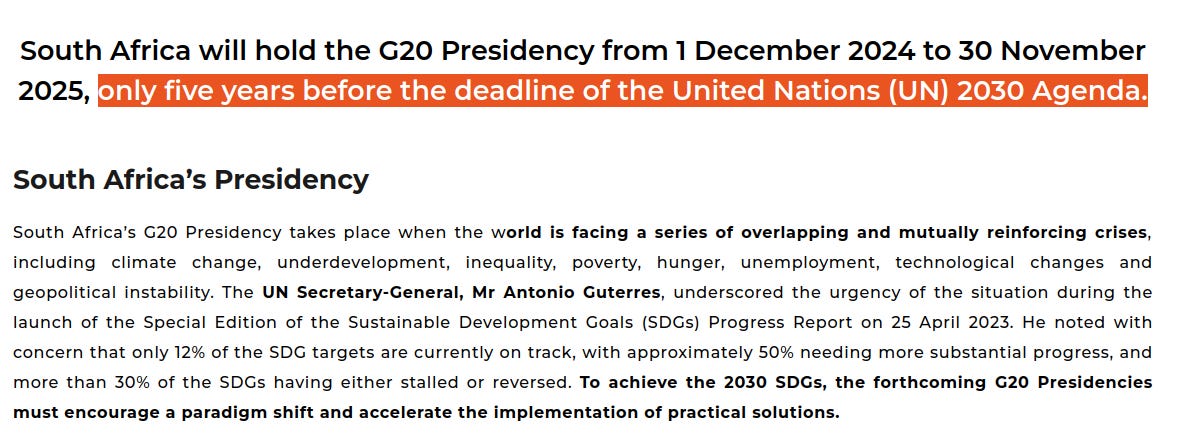
South Africa has used its G20 Presidency to zero in on this existential threat: “While the challenges we face are common, their causes and consequences are unevenly distributed…A lack of predictable and sustainable financing for development and climate action exacerbates these inequalities.”
Of course, actions speak louder than words, especially when there is dire need for climate action.
BRICS, which serves as the multipolar world order’s Fellowship of the Ring, just with fewer wizards and more public-private partnerships, has been working behind the scenes to lay the groundwork for equitable carbon-accounting mechanisms that will help all relevant stakeholders achieve their SDGs before the world is enveloped in life-ending carbon.
Just in the last six weeks, BRICS states have made huge strides towards accounting for, and eventually exterminating, all carbon on Earth.
September 25: China’s carbon market is booming!
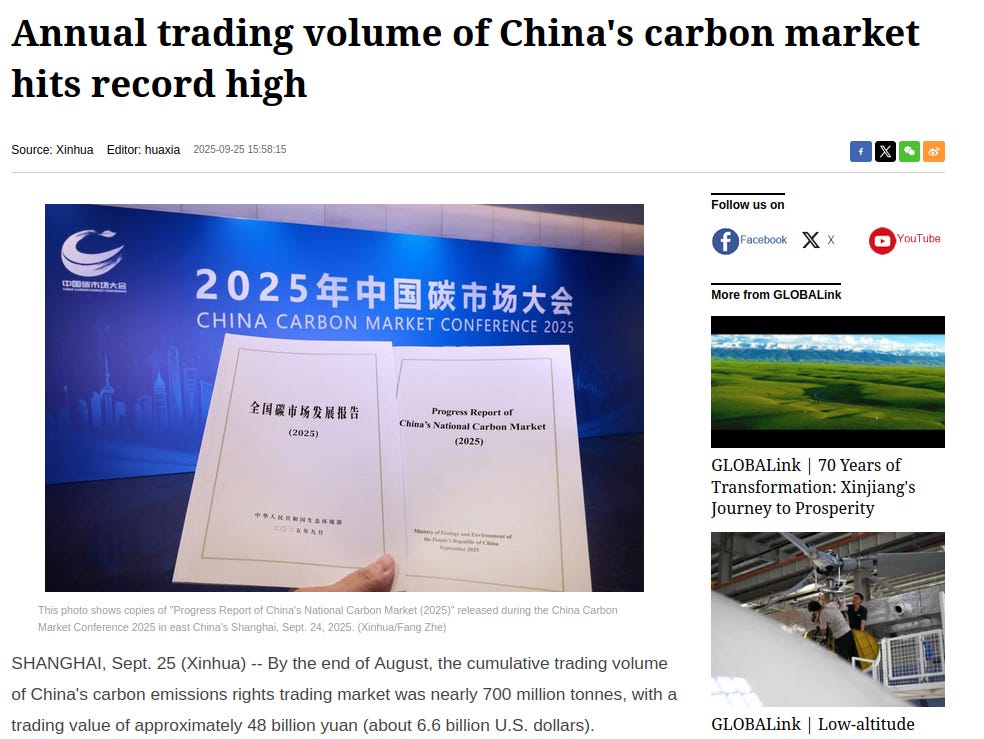
Xinhua news agency provided highlights from the China Carbon Market Conference, held in Shanghai at the end of September:
By the end of August, the cumulative trading volume of China’s carbon emissions trading market was nearly 700 million tonnes, with a trading value of approximately 48 billion yuan (about 6.6 billion U.S. dollars).
Notably, the total transaction volume for the whole of 2024 was the highest since the market began trading in 2021, according to a report on the development of the national carbon market.
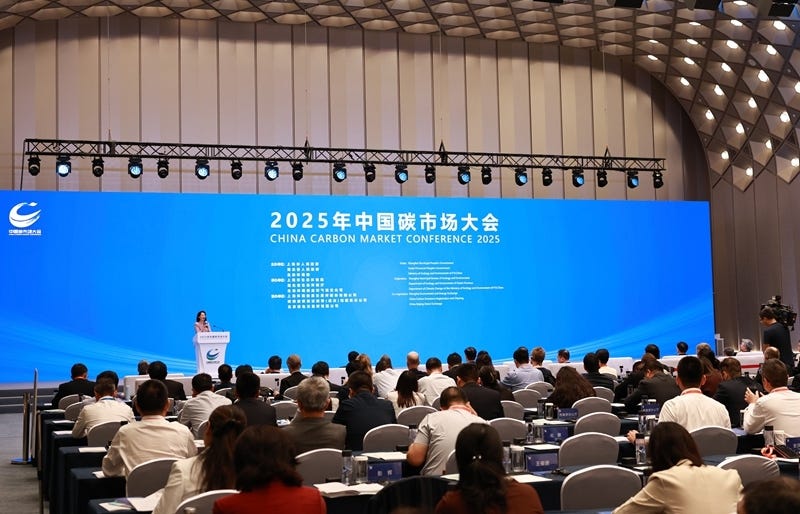
October 10: Brazil to propose international standards to integrate global carbon markets
Brazil has cooked up something special for the upcoming UN Climate Conference, COP30, which will be held in the Brazilian port city of Belém from November 10-21.
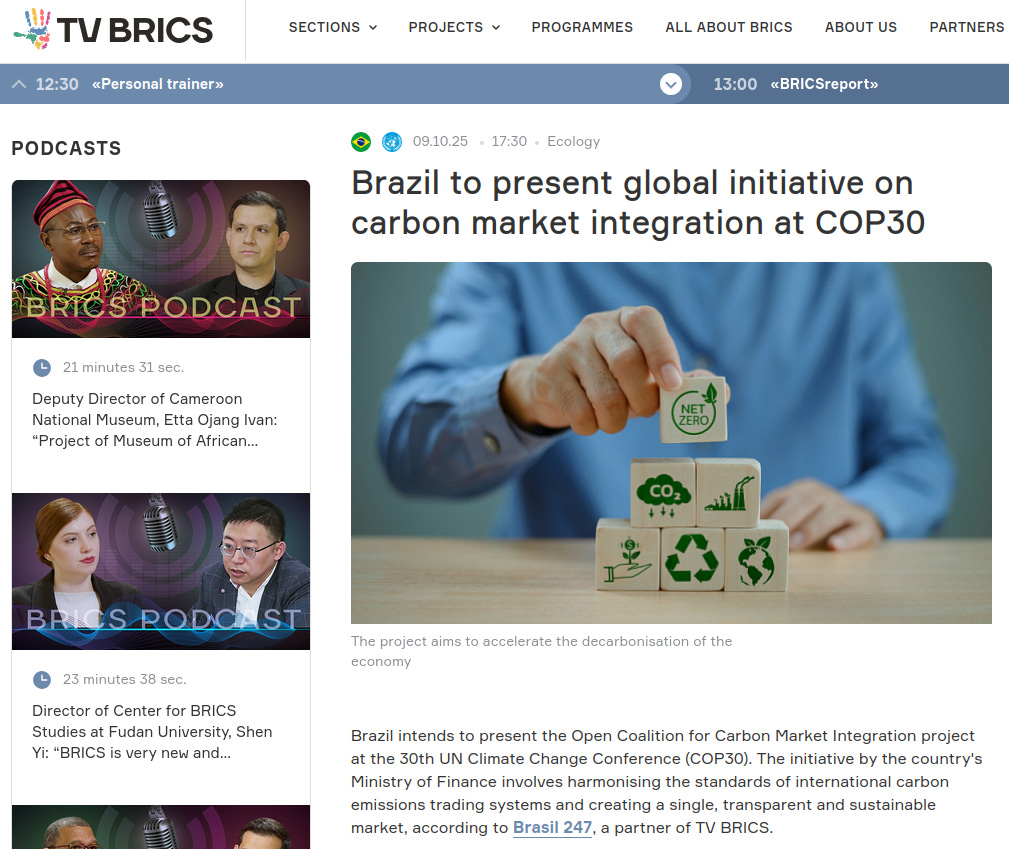
TV BRICS, a Moscow-based media project funded by the Russian government, reported:
Brazil intends to present the Open Coalition for Carbon Market Integration project at the 30th UN Climate Change Conference (COP30). The initiative by the country’s Ministry of Finance involves harmonising the standards of international carbon emissions trading systems and creating a single, transparent and sustainable market.
The coalition is set to become part of the New Brazil government programme, a strategy aimed at combining economic growth, social justice and environmental protection. Participation in the initiative will be voluntary, and the structure will be open to new members at any time.
According to Cristina Reis, Deputy Secretary for Sustainable Economic Development at the Ministry of Finance, the aim of the project is to accelerate global decarbonisation.
“The idea is for countries to work together to reduce emissions, thereby reducing the threat of climate crisis and the negative impact of greenhouse gases on the planet,” she said.
October 20: Can India’s carbon market fuel the country’s “cleantech future”?
There is growing excitement about India’s Carbon Credit Trading Scheme (CCTS), which launched in 2023. Carbon trading is set to begin next year, and there are high hopes that the scheme will “power India’s cleantech future”, whatever that means.
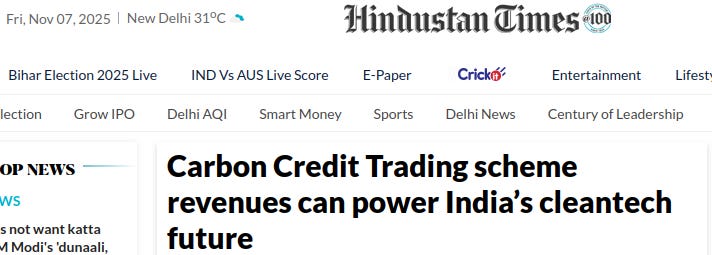
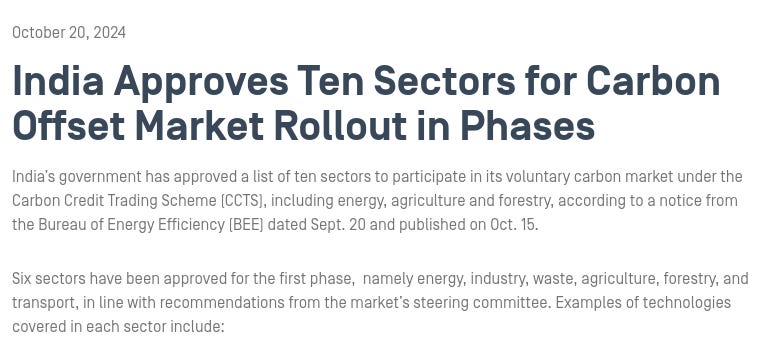
October 22: South Africa to introduce “high-integrity” carbon markets
South Africa has also been busy with its own project to promote “climate-smart growth”.
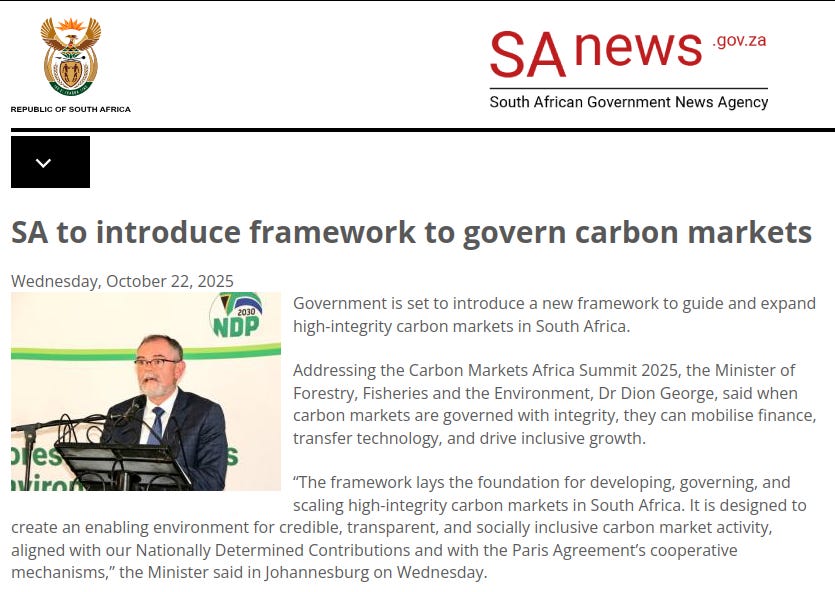
South African state media announced the good news:
[The] government is set to introduce a new framework to guide and expand high-integrity carbon markets in South Africa.
Addressing the Carbon Markets Africa Summit 2025, the Minister of Forestry, Fisheries and the Environment, Dr Dion George, said when carbon markets are governed with integrity, they can mobilise finance, transfer technology, and drive inclusive growth.
“The framework lays the foundation for developing, governing, and scaling high-integrity carbon markets in South Africa. It is designed to create an enabling environment for credible, transparent, and socially inclusive carbon market activity, aligned with our Nationally Determined Contributions and with the Paris Agreement’s cooperative mechanisms,” the Minister said in Johannesburg on Wednesday.
Nationally Determined Contributions (NDCs) embody South Africa’s efforts to reduce national emissions and adapt to the impacts of climate change.
“The future of carbon markets will be defined not by promises but by performance. Our goal is simple: to build a credible system that attracts investment, delivers real emission reductions, and creates lasting value for our people. Through integrity, innovation and partnership, Africa can lead a new era of climate-smart growth,” George said.
The Draft South African Carbon Markets Framework was developed under Article 6 of the Paris Agreement.
Meanwhile, South Africa has been working with the G20’s Sustainable Financing Working Group to “enhance the integrity of carbon credit markets, reduce market fragmentation and enhance carbon market efficiency”.
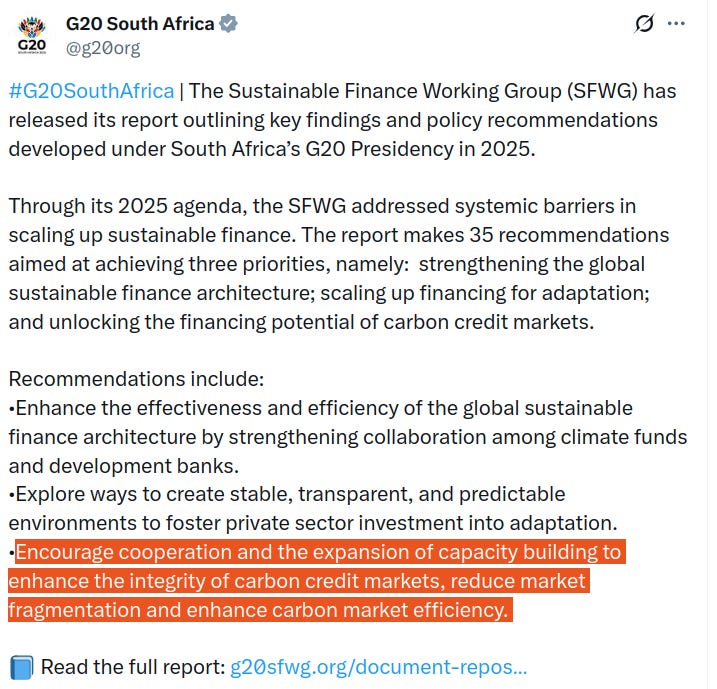
October 27: Russia flaunts carbon market achievements to G20
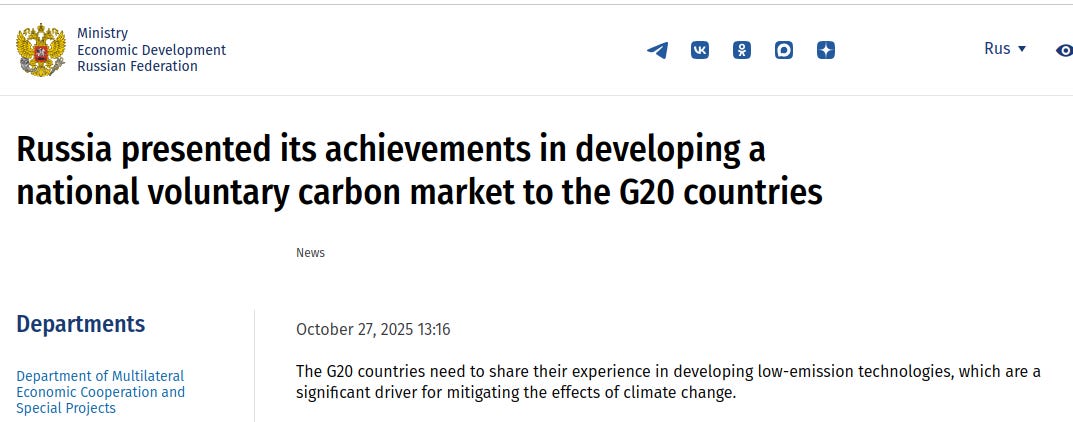
Ahead of the summit in Johannesburg, Ministry of Economic Development of Russia Nikita Kondratiev met with G20 colleagues in Cape Town to share Moscow’s well-documented affinity for carbon accounting:
G20 countries need to share experiences in the development of low-emission technologies that are a significant driver for climate change mitigation.
This was stated by the Director of the Department of multilateral economic cooperation and special projects of the Ministry of Economic Development of Russia Nikita Kondratiev following the final meeting of the working group and the G20 Ministerial Meeting on Environment and Climate Sustainability, which was held in the South African city of Cape Town.
Discussions in the two meetings were based on the priorities set out by the South African presidency. On climate, the parties discussed the reduction of greenhouse gas emissions in the context of sustainable development and adaptation to climate change, mechanisms to respond to collateral losses and damage, and ensuring equitable transitions to a low-carbon economy.
“Our delegation presented … successes in achieving carbon neutrality in Sakhalin, as well as the first successful results in the development of the national voluntary carbon market in Russia,” concluded Nikita Kondratiev.
Please clap.
Bizarrely, BRICS’ crusade against carbon has been curiously ignored by trusted voices in independent media who preach about the glorious ascendance of the multipolar world order. Why do they remain silent about BRICS’ greatest triumphs? This makes no sense if you are trying to promote what the multipolar world stands for: equitable, sustainable, high-integrity carbon trading.


